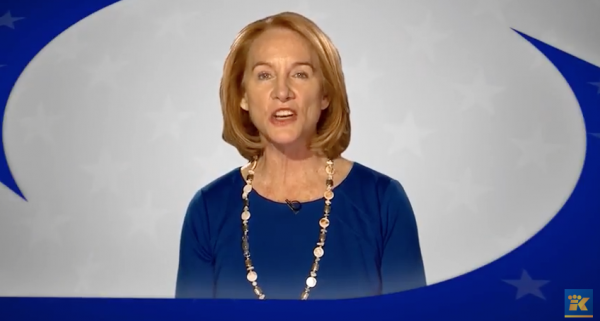
Writing in the Seattle Times Wednesday, columnist Danny Westneat talked about an observation from outgoing Mayor Jenny “Summer-of-Love” Durkan, who said during a press conference on the city’s violent weekend, “When city leaders talk about cutting a department by 50%, you will lose employees.”
Durkan was referring to the far-left City Council, whose majority “embraced last year” rhetoric about stripping half of the police department’s budget. Ultimately, the council cut 11 percent of the budget, Westneat reveals, amounting to $46 million. But the morale-pounding experienced by the agency has resulted in the loss of 270 officers over an 18-month period.
The result has been an uptick in violent crime, including homicide. That Durkan acknowledged this may seem surprising, but what does she have to lose? She is not running for re-election.
Westneat poked the council for being “without any coherent plan to address the worst spate of gun violence in recent memory.”
That’s not just a problem in Seattle. It appears to be a dilemma facing other cities where police budgets were reduced and officers have departed.
But Westneat’s use of the term “gun violence” may strike a nerve with Evergreen State Second Amendment activists, since not all the violence involves firearms. A question posted on Facebook explains the problem: “What do you call it when someone is: Bludgeoned? Fatally stabbed? Strangled? Beaten to death?”
It’s a fair question because “gun violence” seems to affix blame on the instrument rather than the perpetrator.
But reports about a spate of recent rock throwing incidents along I-5 and I-90 didn’t blame the rocks.
Since Seattle’s adoption of a special tax on guns and ammunition back in July 2015 ostensibly to reduce gun violence by raising funds to finance intervention programs—the tax took effect in January 2016—the murder numbers have gone up, not down. Last year, 52 people were murdered in the city.
Another question for which nobody seems to have an answer is how many of the individuals involved in last weekend’s violence, during which five people were killed between Friday evening and Sunday night, were legally carrying firearms? Liberty Park Press received several charging documents relating to violent crime in Seattle and surrounding King County. Several of the suspects now facing charges were allegedly in unlawful possession of firearms.
That would preclude having legally obtained those guns, so there was no background check, and any discussion about so-called “universal background checks” is moot because that’s already the law in Washington state, thanks to Initiative 594, adopted by voters in 2014.
If they were in unlawful possession, they also didn’t have concealed pistol licenses, either due to past disqualifying criminal behavior or because they were under 21 at the time of the crime, or both. In one case of murder in January, the suspect allegedly told detectives he had “purchased the gun several days prior (to the killing).” That doesn’t mean the background check law needs to be strengthened. It means criminals won’t bother with background checks even if the law is somehow made stronger, and they certainly won’t be encumbered with waiting periods, as law-abiding citizens are now.
Westneat’s column says Seattle has become a “no man’s land” thanks to the “city leaders” to whom Durkan referred in her comments. They’re the same people who want to end state preemption so they can create their own gun control laws within the city, although the documents from the County Prosecutor’s office should convince them that local gun control would be as much a failure as the state laws it would presumably replace. But history suggests that won’t stop Seattle from trying. It’s far easier to demonize millions of law-abiding gun owners than it is to admit your policies and politics have failed.
Durkan might share some of the fault, too. Some have argued she provided no clear leadership last year when one councilmember allegedly let a mob into City Hall after hours during the state lockdown.
Now the city has a crisis on its hands. It’s not an “epidemic of gun violence” but a void of leadership that has allowed the left-leaning council, by words and deeds, to create an environment easily fitting Westneat’s description of “no man’s land,” critics have intimated.
It seems to be a malady that masks and vaccines can’t solve.
RELATED:
Seattle Goes Deadly as Four Killed in Weekend of Violence